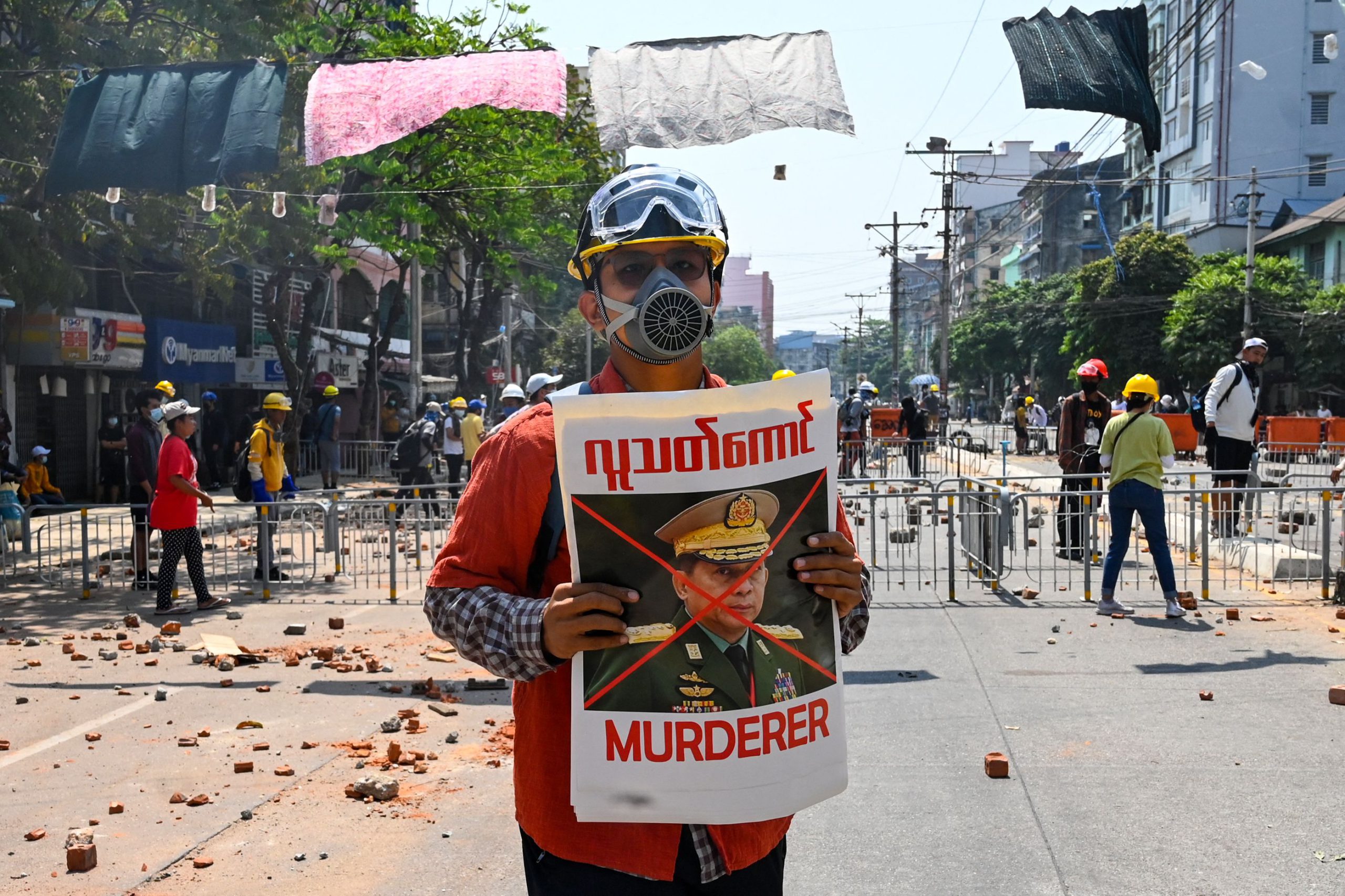
Since seizing power nearly two and a half years ago, Myanmar’s military leaders have failed utterly in their efforts to restore their once absolute supremacy. Facing determined resistance to their rule from both the Burmese majority and ethnic minorities, they have resorted to unprecedented levels of violence. So far, however, they have succeeded only in adding fuel to the fire of the nation’s outrage.
By incinerating entire villages and subjecting civilians to relentless air raids, the regime may have thought that it could force Myanmar’s people into submission. But its terrorist tactics have proven no match for a generation empowered by new technologies and memories of a decade of relative freedom. Despite its daily displays of brutality, it continues to lose ground with each passing month.
To outsiders, the conflict in Myanmar seems immensely complex. But to people living inside the country, the moral dimension of this struggle is as clear as that which faced the free nations of the world during WWII. However complicated it may seem, this is ultimately a fight against oppression. And surrender is not an option.
This is not, of course, the first time that Myanmar has tried to rid itself of a hated dictatorship. Unlike previous attempts, however, this one is characterised by the diversity of the forces working together to achieve this aim. People of every walk of life, of every ethnicity and regional origin, and of every class and gender identity, are united against their common enemy: a military that serves only itself.
What this means is that, unlike in the past, the current movement is not counting on any single figurehead to lead it to victory. The question of how the resistance movement would take shape if Aung San Suu Kyi were released, for instance, is no longer as relevant as it was for the democracy movement that took shape after the 1988 uprising.
As a leader of that movement, Aung San Suu Kyi inspired not only the people of Myanmar, but also the world. But once in power, she disappointed many with her stance on issues such as the military’s genocidal campaign against the Rohingya. Indeed, her willingness to accommodate the military was often perplexing to her supporters. What the country has since learned is that there can be no compromise on fundamental political questions: democracy simply cannot coexist with military rule.
Not surprisingly, the military does not seem to have learned this lesson. It continues to push for bogus elections in a bid to gain some semblance of legitimacy, and it seems to believe that it can once again use Suu Kyi against the forces arrayed against it.
That, at any rate, appears to be what the regime was up to when it arranged for Suu Kyi to meet with the foreign minister of Thailand’s outgoing government, Don Pramudwinai, on Sunday.
That meeting, first reported by Japan’s Kyodo news agency, was revealed by the foreign minister himself at a meeting of his counterparts from the Association of Southeast Asians Nations (ASEAN) in Jakarta on Tuesday. Describing the encounter as “a good meeting,” he went on to say of Suu Kyi’s position on the current situation in Myanmar: “She encouraged dialogue.”
This is not the first time that Thailand’s government, which is soon due to be replaced by one less well-disposed to Myanmar’s dictators, has taken the lead in trying to help the regime end its isolation. It has also hosted gatherings of fellow ASEAN members clearly designed to normalise the junta’s rule, against the objections of some in the bloc appalled by its refusal to end its indiscriminate killing of Myanmar citizens.
What is truly remarkable here is that the Thai government—evidently in collusion with the regime—has seen fit to try to recruit Suu Kyi as part of this effort. Detained since her own government was ousted from power, she has not even been permitted to meet her own lawyers since she was handed a decades-long prison sentence last year on a host of trumped-up charges. And yet now she is suddenly allowed to receive a high-profile visitor who duly conveys her conciliatory message to the outside world.
If the regime is hoping, however, that this will put out the flames of the conflagration that it started when it opened fire on unarmed protesters more than two years ago, it is sadly mistaken. While Suu Kyi still commands immense respect among Myanmar’s people, their outrage will not be so easily assuaged now as it was when she was a global icon of non-violent resistance. There are many in the country who still adhere to those values, but there are many others who feel they have been pushed to take more drastic action. And they won’t be listening to what Suu Kyi has to say now, especially when her words are coming through a messenger who can’t be assumed to be acting in good faith.
All of this is straight out of the playbook of previous regimes: Use Suu Kyi to create the illusion that the military might be willing to soften its position, and then deploy this fiction to weaken domestic resistance and divide international opinion. In this case, this is clearly an attempt to undermine the five-point consensus that ASEAN reached soon after the coup, which called for a cessation of violence, constructive dialogue between the regime and its opponents, and permission for an ASEAN envoy to meet with all parties involved in the conflict.
By continuing to engage in wholesale murder across a wide swathe of the country and holding Suu Kyi and other political leaders hostage, the junta has thumbed its nose at all of these basic demands. And yet it still believes that it can use Suu Kyi to pretend that an alternative path—one that requires only token concessions from the regime—is possible.
While a handful of countries, including China, India, and some ASEAN members, might be satisfied with such empty gestures as they pursue their own interests in Myanmar, others will have no excuse if they allow themselves to be fooled by these old tricks again. The military can no longer be regarded, even provisionally, as a trusted partner in any transition to genuine democracy. The only way forward, then, is to hold firm and demand that it yield power to those who have a legitimate claim to it.



